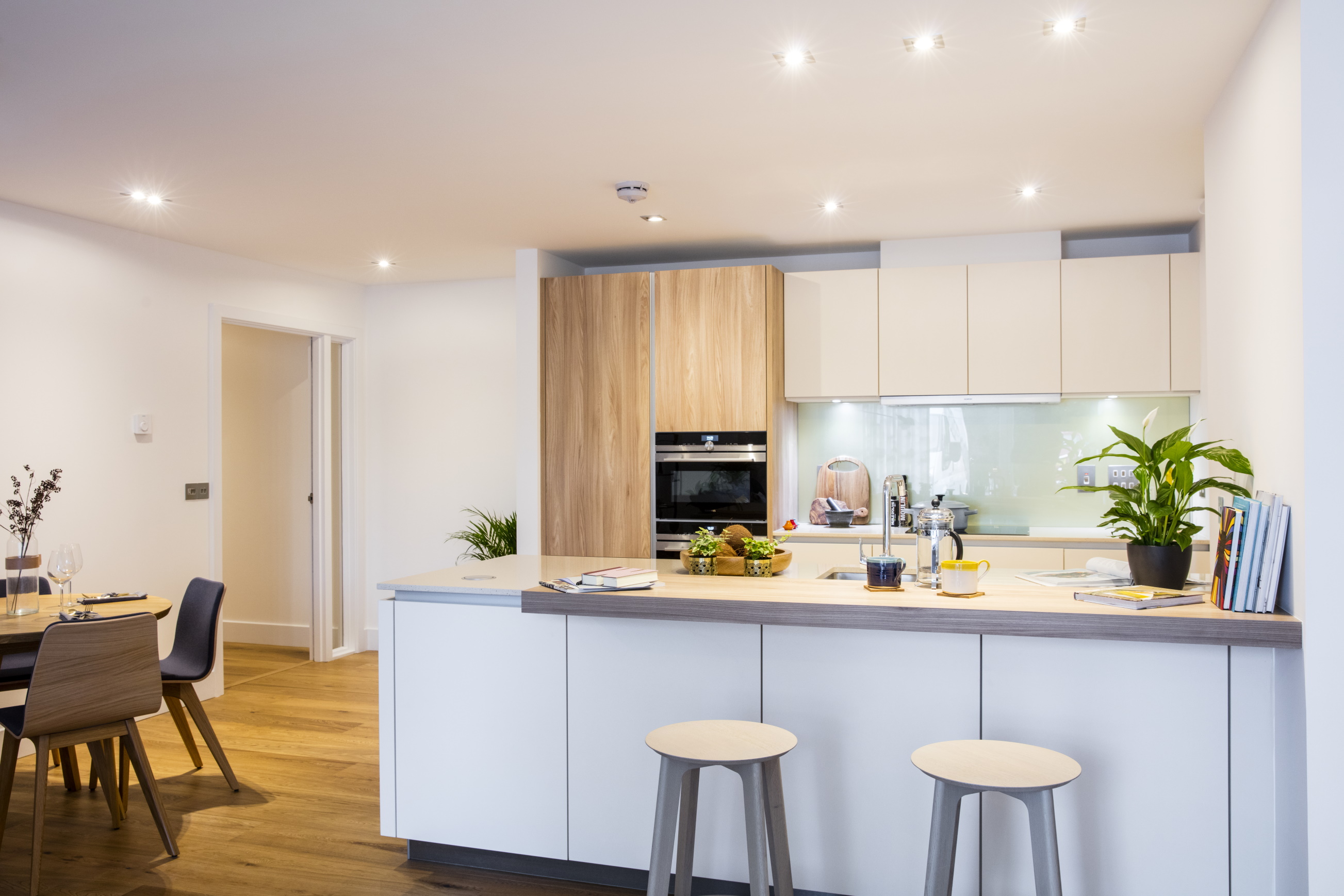Improving home safety

Our homes may be our sanctuaries, but they’re also the places where we’re most at risk of experiencing an accident. Statistics from RoSPA show that 2.7 million people arrive at A&E each year after domestic accidents, and everyone has stories about what-are-the-odds slips and trips.
Fortunately, there are plenty of things you can do to reduce your chances of contributing to 2021’s accident statistics. Below, we consider ways to improve your home’s safety, while protecting yourself along the way…
Making your home safe
Cruden homes are safe by design, with standard specifications including safety glass and window locks in every new home. Cutting-edge electrical wiring minimises the risk of shocks or surges, and our fire safety standards meet the stringent regulations established by the UK and Scottish Governments, with mains-powered smoke detectors fitted as standard.
Homeowners can build on these solid foundations with intelligent specification choices. For instance, carpeted bedrooms improve traction when we’re at our sleepiest and less attentive. Similarly, textured wooden flooring provides more grip underfoot than smooth 1990s-style laminate boards. Position mats inside and outside external doors to extract water from shoes, and try to leave wet footwear in hallways to reduce the risk of slipping while carrying shopping or squeezing round half-open doors. Polished ceramic surfaces offer far less grip than bumpier flagstones or vinyl, though nothing is softer and grippier than carpet. Speaking of grip, position suction mats and anti-slip strips in baths and shower cubicles.
Effective lighting can significantly reduce accident rates around the home, allowing you to see the edge of stair treads or discarded Lego bricks. Kickplate lighting in the kitchen and stair treads won’t cost much to install (or run if they use energy-efficient LED bulbs), but they could avoid a broken ankle. Good lighting is also vital while reading or working from home, since it reduces eyestrain and headaches. And on the subject of home working, tie cables together and secure them in place with bungee cords or cable tidies, rather than letting them snake across the floor.
Keeping yourself safe
Inattention causes accidents, so don’t use a smartphone as you walk downstairs, or try to open a door while talking over your shoulder. Minimise health and safety risks by not wearing loose robes while cooking on a gas hob, or unplugging something with damp hands. New parents will need to keep their offspring safe by investing in everything from cupboard locks to stair gates and fireguards; the latter may also benefit larger pets. Try to keep animals away from freshly mopped floors, since they could easily slip and hurt themselves.
Although you’re statistically very unlikely to experience a domestic fire, it’s worth investing in a fire blanket and extinguisher. App-controlled smart plugs are less prone to overheating than old-fashioned lamp timers, and only ever use one surge-protected plug adaptor per socket. Get into the habit of unplugging non-essential electrical devices before going to bed, and don’t buy high-wattage lightbulbs unless both the lamp and the shade they’ll be used in are compatible.
Finally, take five minutes to plan an escape strategy if you ever have to vacate your house in a hurry, such as a burst pipe causing severe flooding. Folding cardboard pet carriers are ideal for extracting animals at short notice, and a fireproof box offers robust protection for hard-to-replace documents like passports and birth certificates – while also providing a single item to take with you in an emergency. Expedite hasty departures by ensuring door or window keys are easily accessible, and never obstruct stairwells or external doors.
Finally, may we take this opportunity to wish all our readers and customers, a happy and safe new year!
Back to Latest Posts




